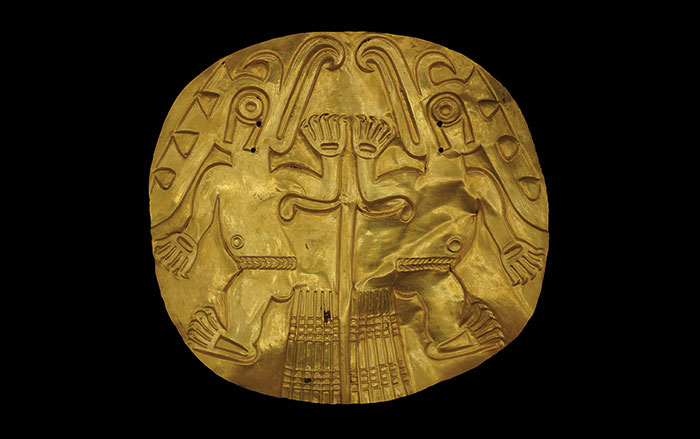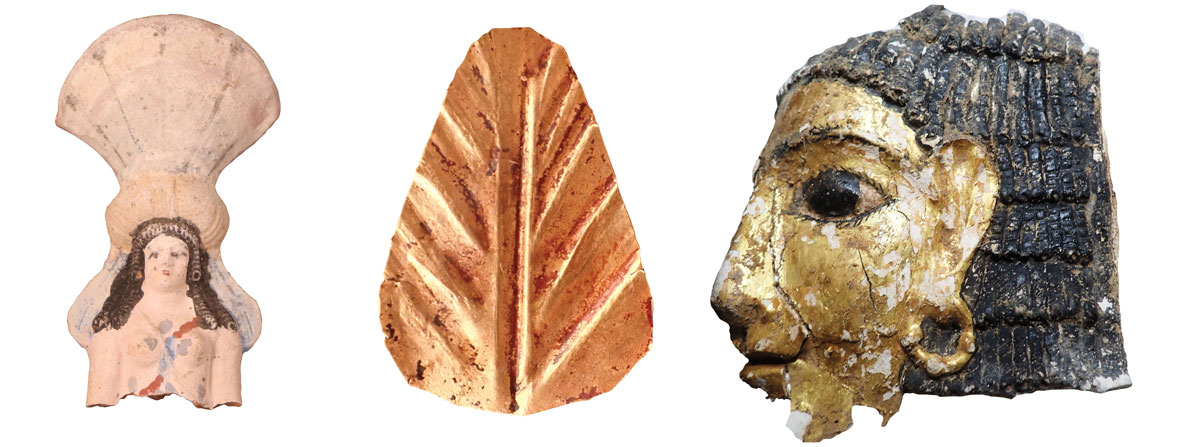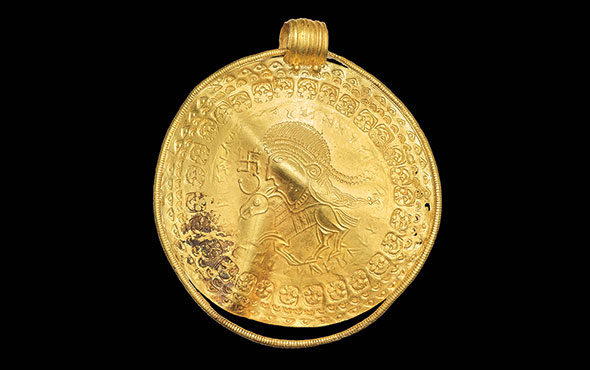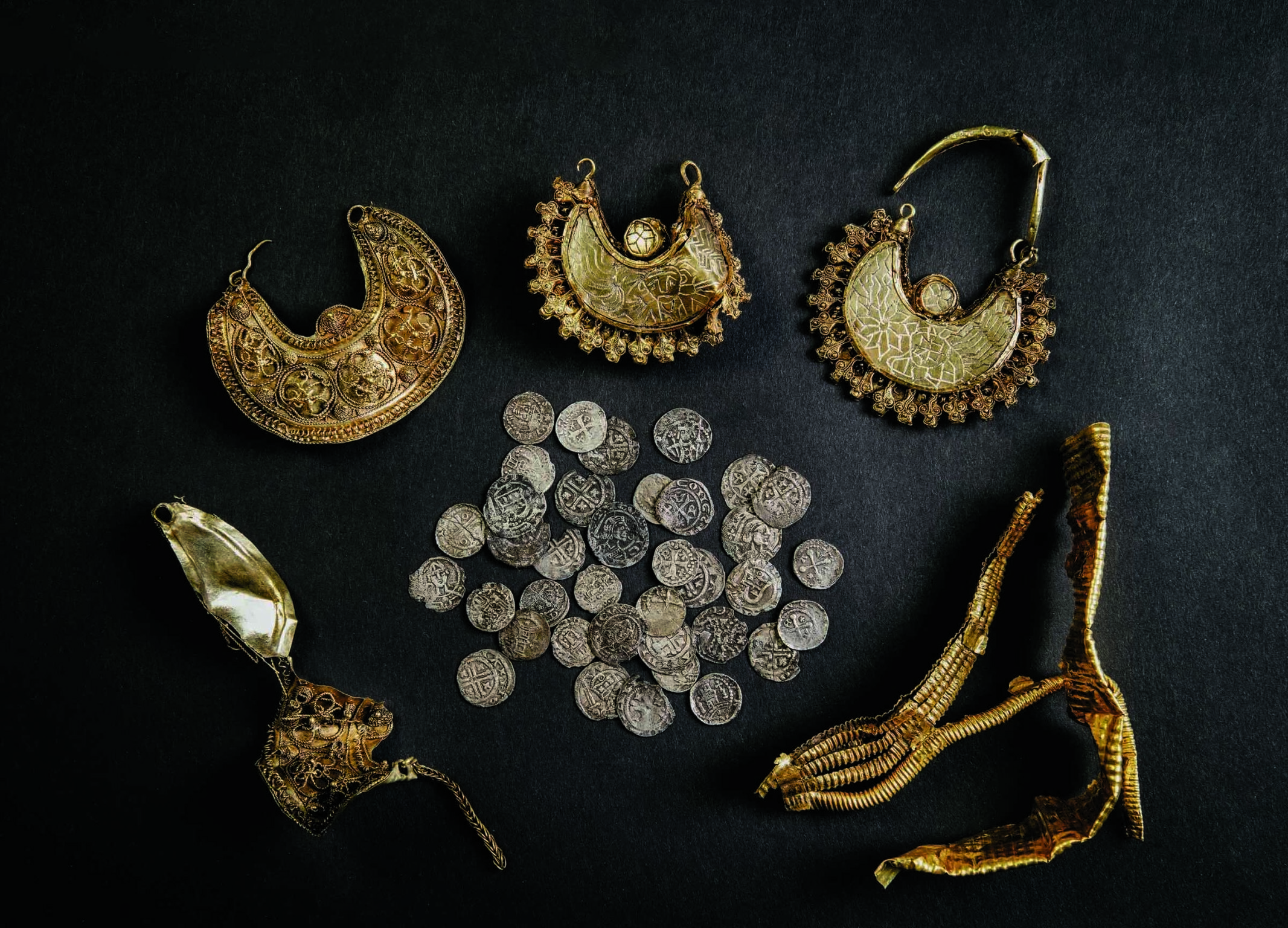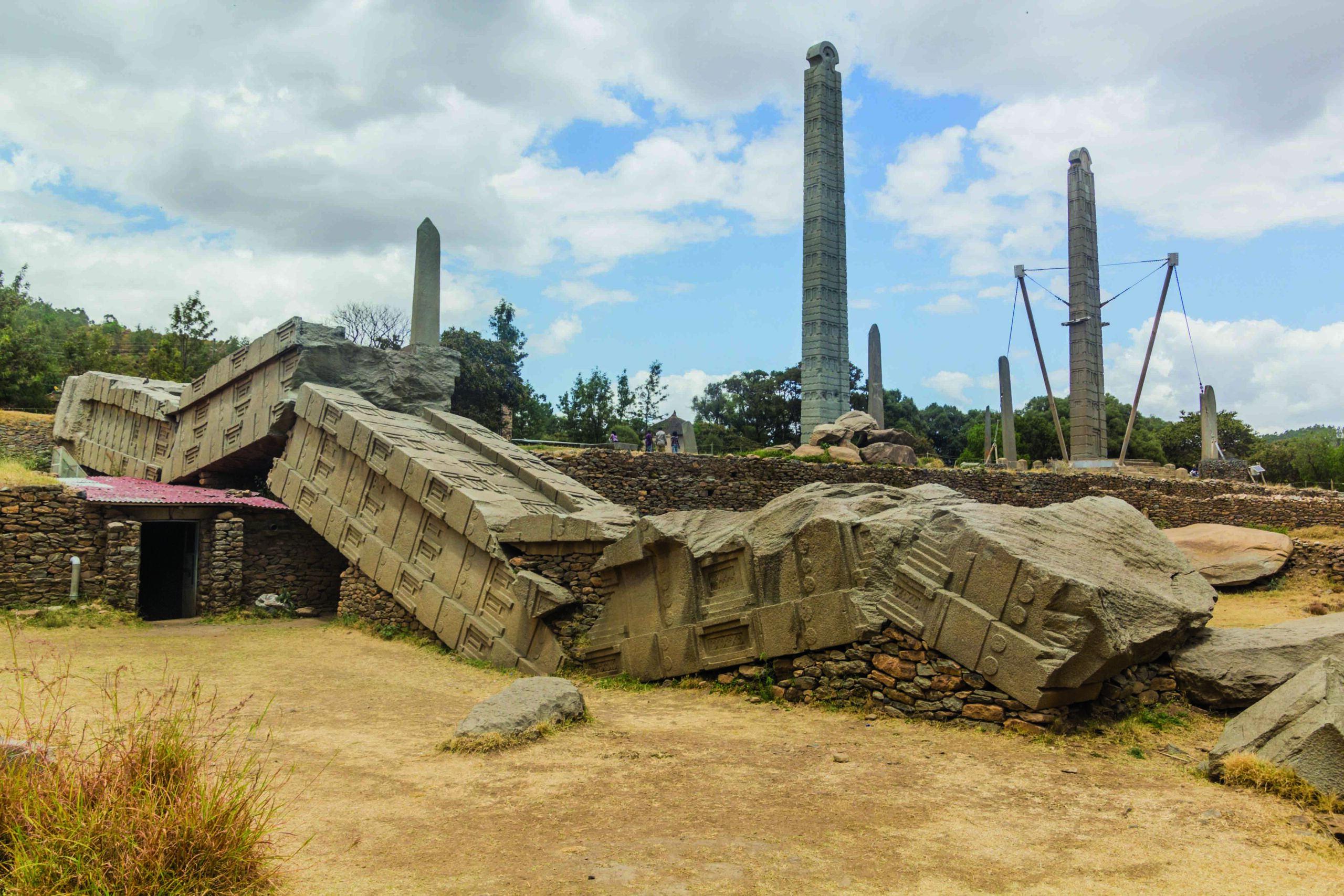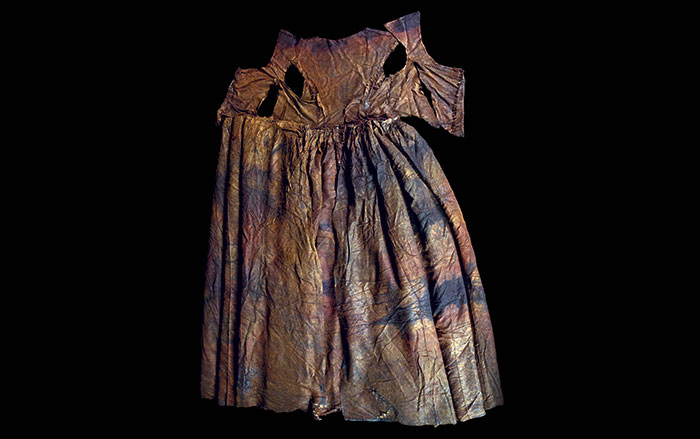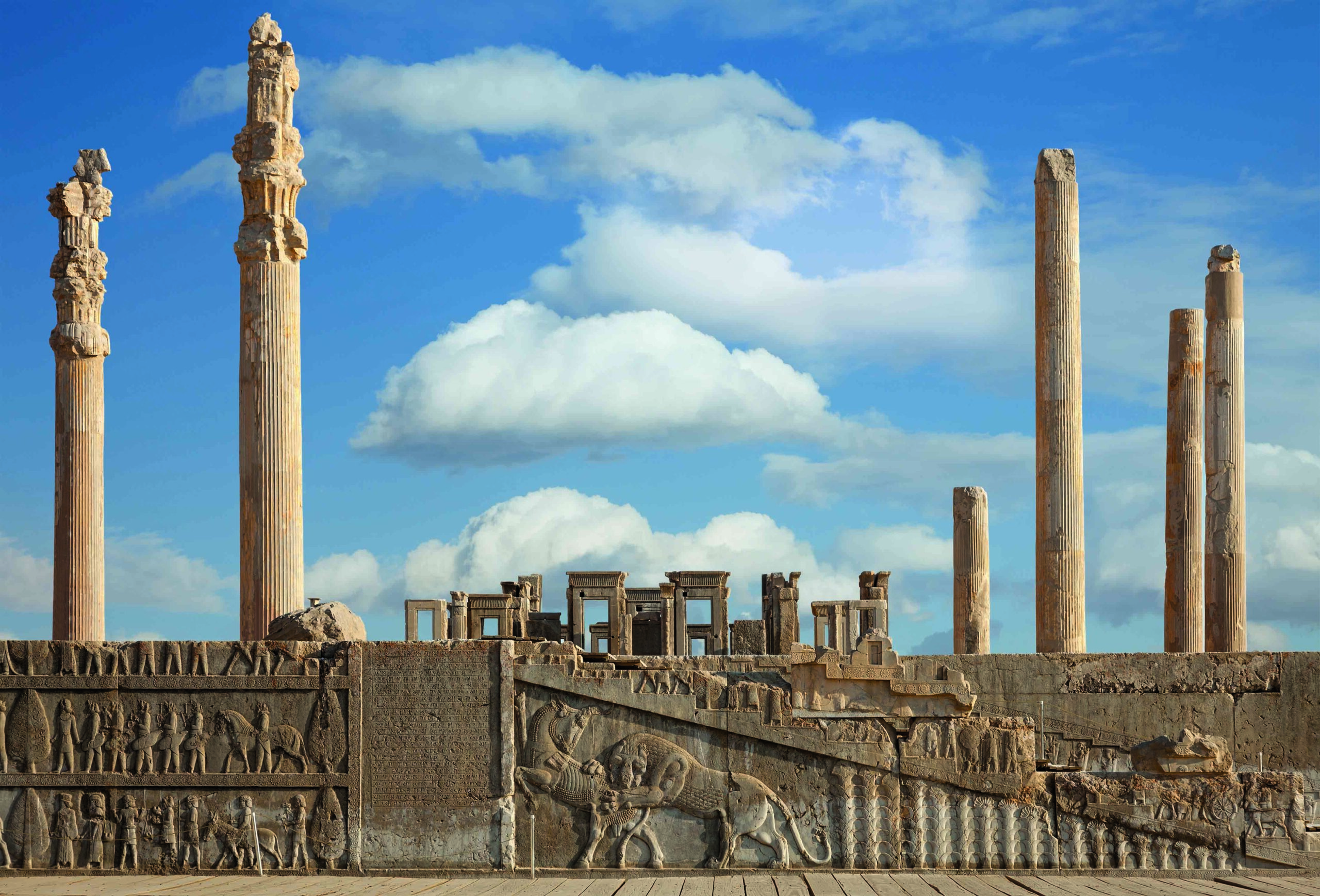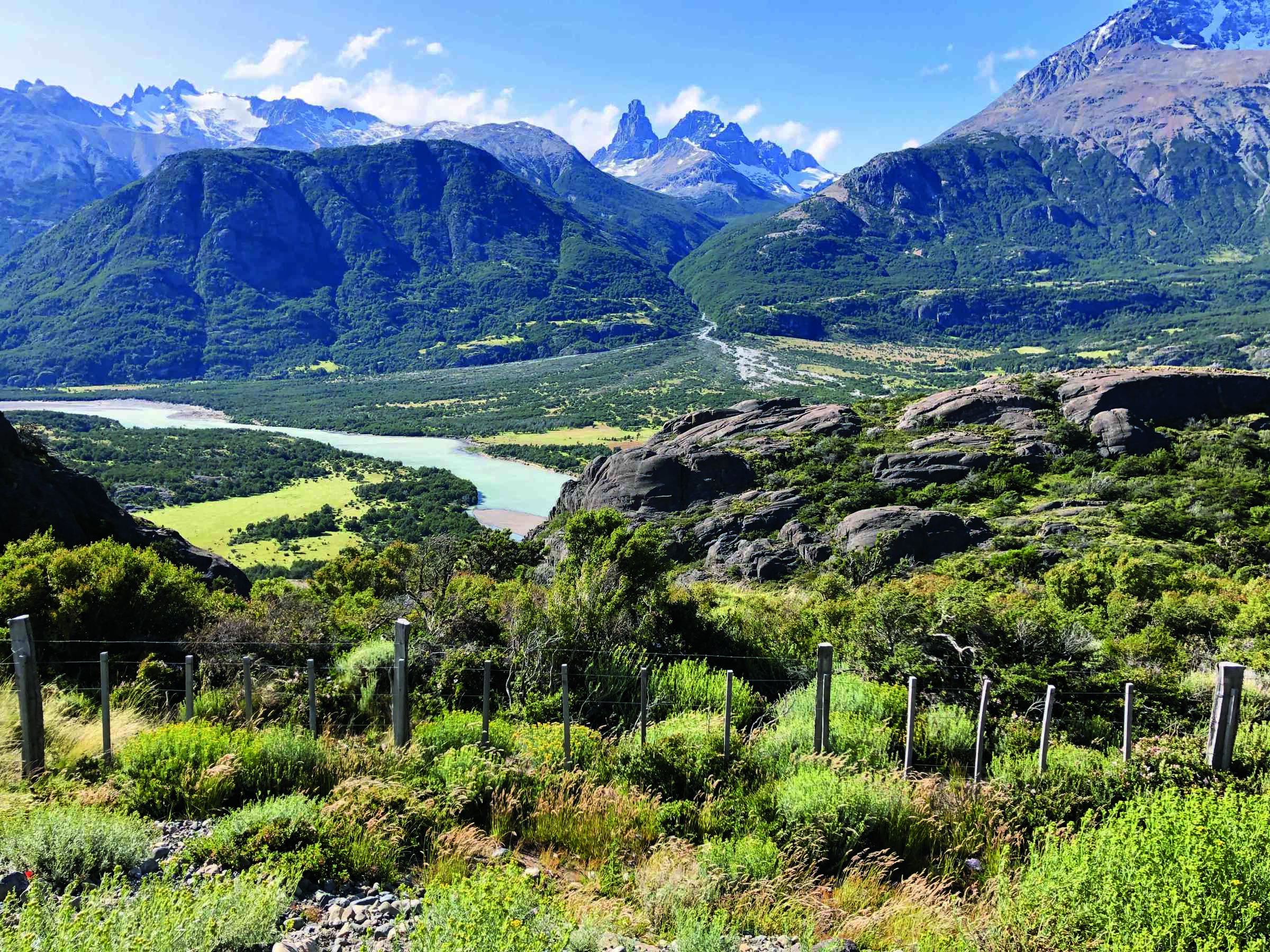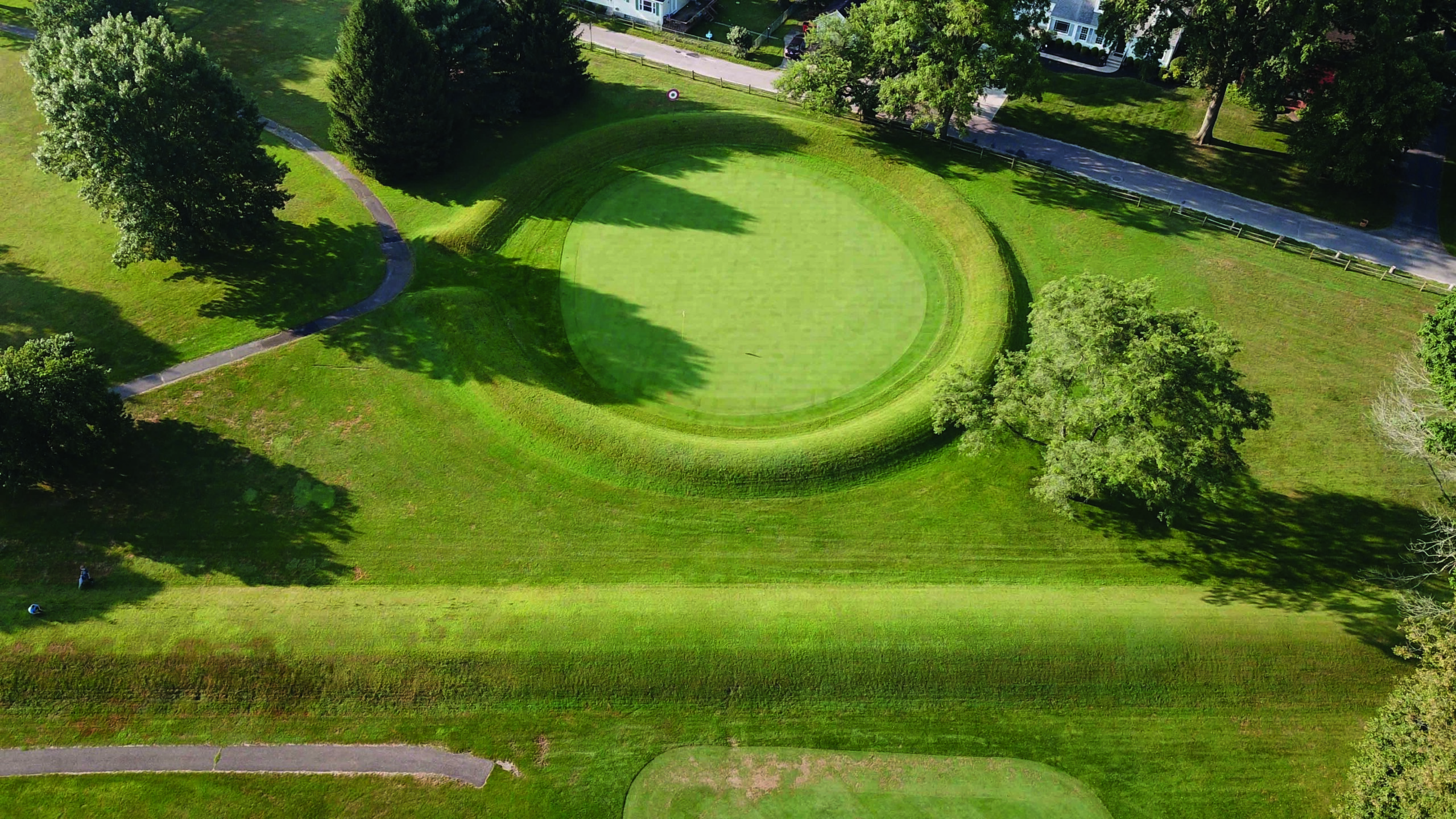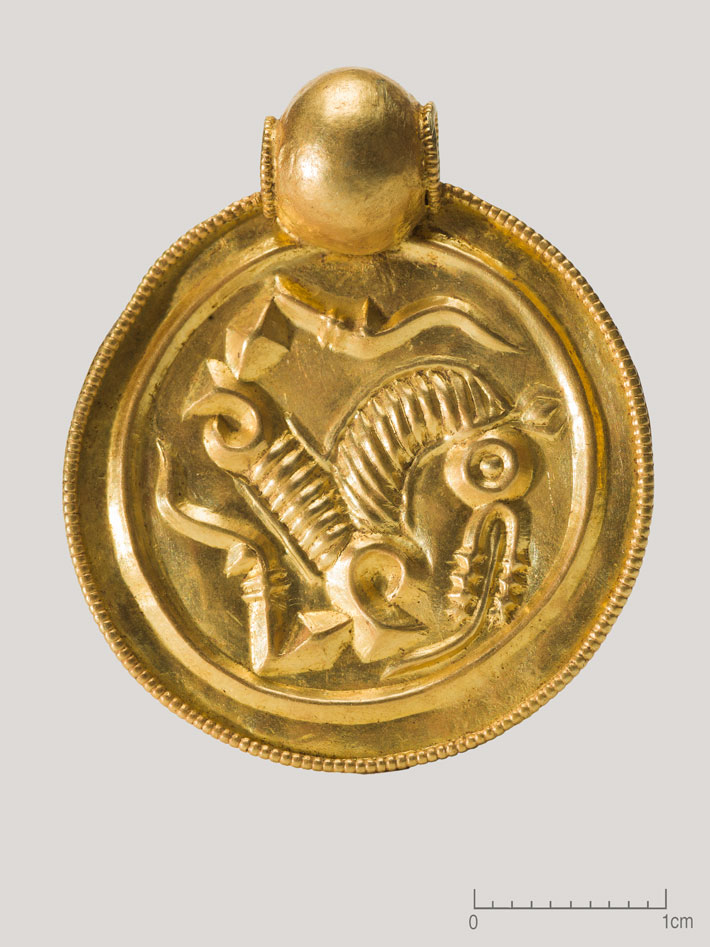
STAVANGER, NORWAY—Nine stamped gold medallions, or bracteates, bearing the same horse image; ten gold beads; and three gold rings were discovered on the island of Rennesøy in southwestern Norway by a metal detectorist, according to a Science Norway report. Håkon Reiersen of the University of Stavanger Museum of Archaeology said that the sixth-century bracteates and beads made up a necklace crafted by skilled goldsmiths to be worn by the most powerful in society. He thinks the jewelry may have been hidden for safekeeping or as an offering since the residents of the region experienced failed crops, plagues, and worsening climate during this period. “The many abandoned farms in Rogaland suggest that the crisis hit particularly hard in this area,” Reiersen explained. Sigmund Oehrl of the Museum of Archaeology added that the image on these bracteates—a horse with a slumped posture, its tongue hanging out, and twisted legs—is unusual, and may be related to a story about renewal and resurrection in which the god Odin healed his son Balder’s sick horse. To read about a gold bracteate unearthed in Denmark that is inscribed with the oldest known written reference to Odin, go to "Artifact."


